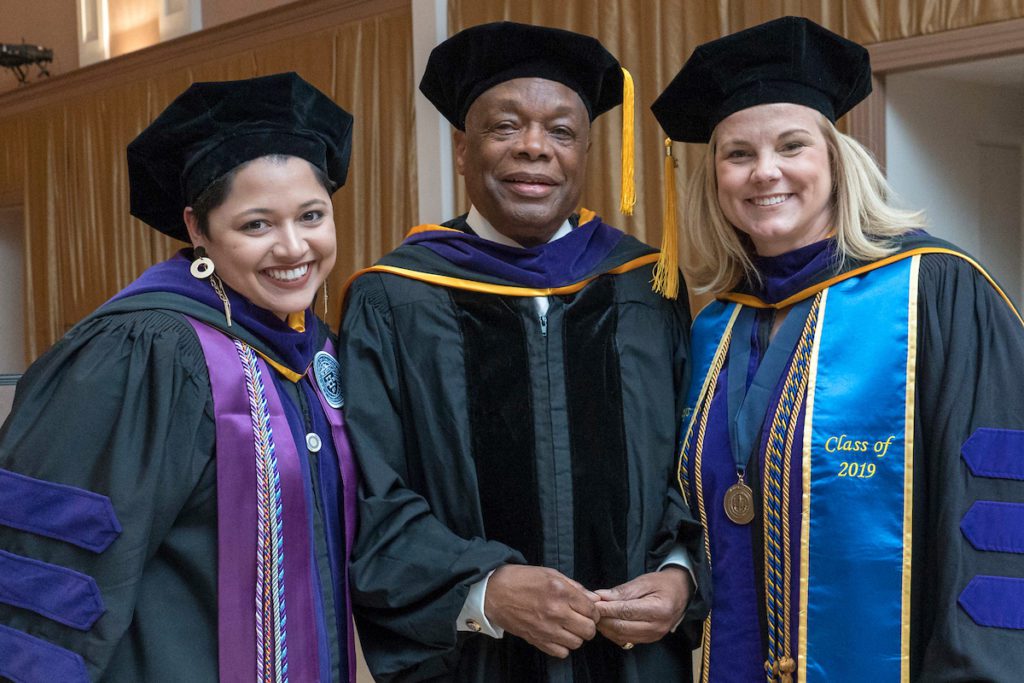A gift from the class of 2019 addresses atrocities of the past
Accountability and transparency have been hot-button issues of late, with individual and corporations increasingly facing up to offenses past and present. Universities have not been exempt from such culpability.
Recognizing this, the class of 2019 made a gift to establish the Annual Native Law and Policy Symposium, a lecture series that “aims to bring awareness to the historical and existing legal frameworks that have created or perpetuated the subordination of Native and indigenous populations in Northern California and the broader United States.” The fund was created with the goal of raising $15,000.
ASUCH President Melina Hettiaratchi ’19 announced the gift in her speech at the law school’s Commencement ceremony on May 11. “We are proud to bring back the Class Gift Campaign with a gift that will strengthen the UC Law SF community by acknowledging and addressing the wrongs of the past that bear the Hastings name,” she said.
Serranus Hastings is known as the College’s founder and first dean as well as the first chief justice of the California Supreme Court. However, in 1859, he was also a member of a coalition of landowners responsible for the murder of at least 600 Yuki native people in Mendocino County’s Round and Eden valleys. The violence was part of a drive to eliminate the state’s indigenous population and take their lands and resources.
The College acknowledged this brutality by creating the UC Law SF Legacy Review Committee in 2017. Chancellor & Dean David Faigman charged the committee with determining the extent of Justice Hastings’ involvement with the bloodshed and recommending the appropriate institutional response. After concluding that Justice Hastings was indeed part of the actions in question, UC Law SF representatives began ongoing discus- sions with the InterTribal Sinkyone Wilderness and Round Valley Indian Tribal councils to examine ways to redress the atrocities.
Members of the graduating class met with the tribal council to get feedback on how the symposium could best lift their voices moving forward. “We hope [the UC Law SF community] will join us in supporting the healing of communities past and present,” Hettiaratchi said.
